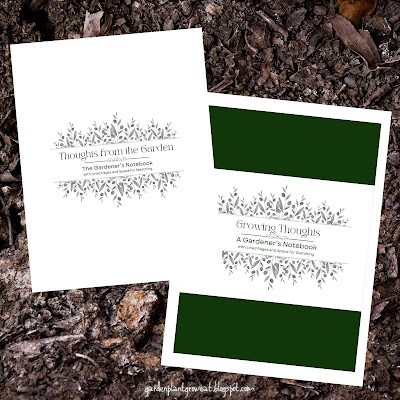Organic Gardening Explained. What It Is and How to Start!
Organic Gardening Explained. What It Is and How to Start!
Organic gardening became a buzzword in the world of sustainable living long ago,
Instead of relying on synthetic fertilizers, organic gardeners nourish the soil with compost, manure, worm castings, and organic mulch. This approach encourages a rich microbial ecosystem that naturally supports plant growth.
Methods like introducing beneficial insects (ladybugs, lacewings), using neem oil or insecticidal soap, and companion planting help maintain balance in the garden without harming the ecosystem.
By growing a variety of plants, you encourage a mix of beneficial insects and microorganisms that create a stable, resilient garden. Crop rotation and polyculture planting (growing multiple plant species together) both can help prevent disease outbreaks and nutrient depletion.
Using techniques such as drip irrigation, mulching, and rainwater collection reduces waste and ensures that water is used efficiently.
Instead, natural fertilizers like compost and manure provide nutrients, while techniques like hand-weeding and organic mulch suppress weeds.
Not just about avoiding chemicals – It’s about building a resilient and balanced ecosystem.
Not always 100% pest-free – Organic gardens embrace nature’s checks and balances rather than eradicating all pests.
Not just about vegetables – Flowers, herbs, and even ornamental plants can be grown organically!
Not only does it help reduce pollution, conserve biodiversity, and ensure that the food we eat is free from harmful chemicals ~ the practice also reconnects us with the threads of the land while fostering a sense of stewardship over our environment.
By choosing organic practices, we contribute to a healthier planet, healthier food, and a deeper connection to nature.
Whether you are starting small with a few container-grown herbs or transforming your entire backyard, every organic choice makes a difference.
Stay tuned for the upcoming YouTube video and Shorts series to visually ‘dig in’ to these principles further. See exactly how to apply organic gardening techniques in your own space!
Organic gardening became a buzzword in the world of sustainable living long ago,
but what does it truly mean?
Is it just about avoiding synthetic chemicals, or is there more to the practice?
In this deep dive, uncover the essence of organic gardening—what it is, what it isn’t, and why it matters now in 2025 more than ever…
Instead, it relies on natural processes to build soil health, encourage biodiversity, and create a self-sustaining ecosystem.
The goal is not just to avoid chemicals but to cultivate a truly balanced environment where plants thrive naturally.
In this deep dive, uncover the essence of organic gardening—what it is, what it isn’t, and why it matters now in 2025 more than ever…
What is Organic Gardening?
At its core, organic gardening is the practice of growing plants, particularly food crops, without synthetic fertilizers, pesticides, herbicides, or genetically modified organisms (GMOs).Instead, it relies on natural processes to build soil health, encourage biodiversity, and create a self-sustaining ecosystem.
The goal is not just to avoid chemicals but to cultivate a truly balanced environment where plants thrive naturally.
Organic gardening works with nature, not against it.
This means enriching the soil with compost and natural amendments, encouraging beneficial insects, and embracing techniques like crop rotation and companion planting.Key Principles of Organic Gardening
To be considered truly organic, a garden should adhere to these fundamental principles…1. Healthy Soil = Healthy Plants!
Soil is the foundation of organic gardening.Instead of relying on synthetic fertilizers, organic gardeners nourish the soil with compost, manure, worm castings, and organic mulch. This approach encourages a rich microbial ecosystem that naturally supports plant growth.
2. Natural Pest and Disease Management
Organic gardening does not mean letting pests take over—it means using natural solutions to keep them in check.Methods like introducing beneficial insects (ladybugs, lacewings), using neem oil or insecticidal soap, and companion planting help maintain balance in the garden without harming the ecosystem.
3. Diversity and Biodiversity
A true organic garden is a diverse garden.By growing a variety of plants, you encourage a mix of beneficial insects and microorganisms that create a stable, resilient garden. Crop rotation and polyculture planting (growing multiple plant species together) both can help prevent disease outbreaks and nutrient depletion.
4. Sustainable Water Practices
Water conservation is an essential aspect of organic gardening.Using techniques such as drip irrigation, mulching, and rainwater collection reduces waste and ensures that water is used efficiently.
5. Avoidance of Synthetic Chemicals
A hallmark of organic gardening is the complete avoidance of synthetic fertilizers, herbicides, and pesticides.Instead, natural fertilizers like compost and manure provide nutrients, while techniques like hand-weeding and organic mulch suppress weeds.
What Organic Gardening is NOT!
Many misconceptions exist around the topic of organic gardening. Here’s what it is not…Not just about avoiding chemicals – It’s about building a resilient and balanced ecosystem.
Not always 100% pest-free – Organic gardens embrace nature’s checks and balances rather than eradicating all pests.
Not just about vegetables – Flowers, herbs, and even ornamental plants can be grown organically!
Why Organic Gardening Matters in 2025 and Beyond
As climate change accelerates and food security becomes an increasing concern, organic gardening offers a sustainable solution.Not only does it help reduce pollution, conserve biodiversity, and ensure that the food we eat is free from harmful chemicals ~ the practice also reconnects us with the threads of the land while fostering a sense of stewardship over our environment.
Final Thoughts For Growing a Greener Future
Organic gardening is more than just a mere method; it is a mindset.By choosing organic practices, we contribute to a healthier planet, healthier food, and a deeper connection to nature.
Whether you are starting small with a few container-grown herbs or transforming your entire backyard, every organic choice makes a difference.
Stay tuned for the upcoming YouTube video and Shorts series to visually ‘dig in’ to these principles further. See exactly how to apply organic gardening techniques in your own space!




Comments
Post a Comment